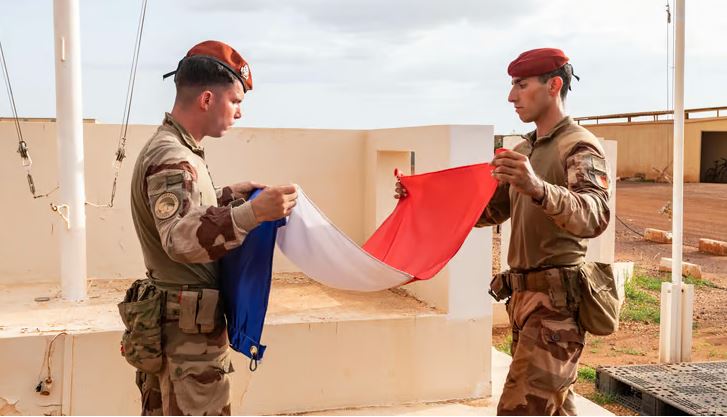
This originally appeared on TheAfricaReport.com
Was the criticism of France’s presence in Mali, Guinea, Burkina Faso and Niger more about national pride than about fostering true democratic development?
France has faced increasing calls to withdraw its military presence from several African countries in recent years, particularly in West and Central Africa, where it has maintained a strong presence for decades.
This movement, driven by nationalist sentiment, anti-colonial rhetoric, and political shifts across the continent, culminated in France’s strategic retreat from countries like Mali, Burkina Faso, and Niger. Yet, despite the hope that this withdrawal might empower local governments and democratic processes, the reality has been more complex – and in many cases, democracy has faltered rather than flourished.
For decades, France’s involvement in Africa was often criticised as a continuation of colonial-era dominance, a network often referred to as françafrique. Military interventions, such as those in Mali in 2013 (Operation Serval) and subsequent engagements in the Sahel under Operation Barkhane, were justified as efforts to combat jihadist insurgencies. However, these missions also served to bolster the fragile governments of countries like Mali, Niger, and Burkina Faso.
Critics of France’s presence claimed that these interventions, though wrapped in the language of security, propped up autocratic or weak leaders while stifling local sovereignty. As domestic opposition in Africa grew and France’s popularity waned, a wave of military coups swept across the region. These coups in Mali (2020), Guinea (2021), Burkina Faso (2022), and most recently Niger (2023), led to calls for France to depart entirely from these former colonies.
Exodus and its impact on democracy
The withdrawal of French forces was heralded by many as a victory for national autonomy. However, the subsequent political developments have cast doubt on whether this exodus has indeed benefited democracy. In the power vacuums left behind, military juntas have risen, suspending constitutional rule, and replacing civilian governments with authoritarian regimes. For instance, in Mali and Burkina Faso, the coups were followed by transitional military governments that curtailed civil liberties, silenced the press and delayed the promised return to democratic elections.
Ironically, while French military involvement was often criticised for sustaining undemocratic regimes, its departure has not ushered in the democratic renewal some had anticipated. In fact, many of the juntas now in power appear less committed to democratic ideals than the civilian governments that preceded them. This begs the question: Was the criticism of France’s presence more about national pride than about fostering true democratic development?
The role of Russia and other powers
A complicating factor has been the entry of other global players into the African arena. Russia, in particular, has taken advantage of France’s retreat, deepening its influence through both diplomatic and military channels. The Wagner Group, a private Russian military company, has established a significant presence in Mali and the Central African Republic, often with the tacit approval of local regimes. These relationships, based more on military strength than democratic principles, have raised alarms about the future of governance in the region.
In Mali, the junta’s alignment with Russia and the departure of French forces coincided with a deteriorating security situation, with jihadist attacks continuing to plague the region. Similarly, Burkina Faso and Niger have struggled to regain control over vast swathes of territory. The influence of external actors like Russia, with little interest in promoting democracy, has created an environment where authoritarian rule is not only tolerated but reinforced.
A deeper crisis of governance
Beyond geopolitics, the challenges to democracy in these countries also reflect deep-rooted governance issues. Corruption, weak institutions, and social inequality have long undermined the capacity of some African states to build inclusive political systems. French military support may have masked these structural problems, but its withdrawal has only exposed the fragility of state institutions.
In many cases, the local populations that had called for an end to French involvement are now disillusioned with the military regimes that replaced them. The promise of a democratic resurgence has been replaced by a sense of uncertainty, as African nations navigate new alliances with global powers that may be less interested in democratic outcomes.
What’s next?
The French exodus from Africa has not resulted in the democratic progress many had hoped for. While it has provided African nations with the opportunity to reclaim their sovereignty, it has also left them vulnerable to new forms of authoritarianism, both domestic and foreign. The rise of military juntas and the increasing influence of Russia suggest that the region’s political future may be defined by instability rather than democracy.
The challenge moving forward will be for African countries to balance national sovereignty with the need for stable, democratic governance. Without significant internal reforms, external military interventions — whether by France, Russia, or other powers — will continue to shape the political landscape, often at the expense of democratic ideals.
